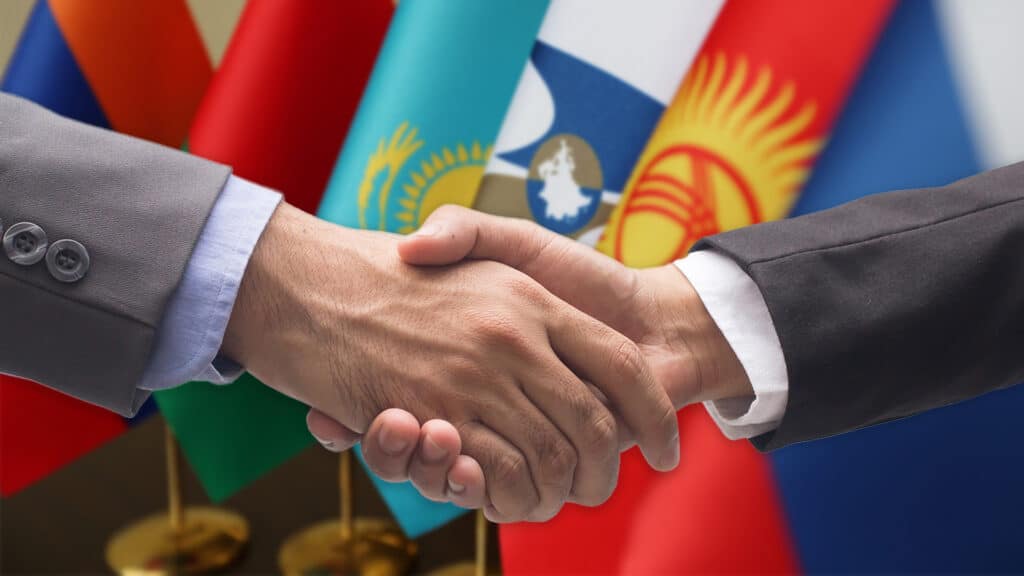EDB presents a plan for expanding cooperation within the EEU

The Eurasia Development Bank (EDB) has proposed 12 practical steps aimed at the further development of economic cooperation within the Eurasian Economic Union (EEU). This proposal covers a wide range of spheres such as physical infrastructure (transport, hydro-energy complex and food logistics), trading and financial relations, including sustainable funding and cooperation in the humanitarian field, the organization reported on its website.
«In order to deepen this cooperation, more practical solutions are needed; solutions that might be implemented in a rapid manner and within flexible configurations of member states. The development of direct horizontal mechanisms of cooperation will allow us to lessen the EEU’s dependence on mediatory activities by third parties (countries, international organizations and transnational corporations), to increase security and decrease the costs of direct contacts between Eurasian states,» the EDB said in a statement.
The first three clauses of the proposal are linked with the sphere of transportation. The first one suggests creating a Eurasian transport frame to boost the number of routes from the east to the west and from the north to the south and promote interaction between them. According to experts, this would require member states to work together on joint infrastructural projects, to attract more investments and coordinate their national plans for infrastructural development. The second clause of the proposal says that it is necessary to form the overall map of transport routes within Eurasia to determine the key routes in the region and create a pool of transport projects that might be used by international banks and development programs. The third clause covers the issue of public-private partnership (PPP) that can assist transport communication between Eurasian states. This would also require additional investments.
The next three steps are related to water and energy. EDB’s experts believe that an international water and energy consortium is needed. They also suggested creating regional and country KPIs for water saving and seriously thinking about launching irrigation equipment production. The countries bordering the Irtysh River – Kazakhstan, China and Russia – were recommended to combine their efforts to find a sustainable solution to secure a reliable water supply for all three states. Moreover, the development of transborder energy lines will allow one country to compensate for an energy shortage at the expense of others when necessary.
To strengthen the food supply within Eurasia, the EDB suggests improving transport communication by developing the international North-South transport corridor. This initiative also covers railways and motorways terminals in seaports, border stations and car crossing points, dry ports and transport and logistical centers.
In terms of trade, the bank believes that new agreements on free trade would facilitate the rapid development of trading and investment connections in the swath of Eurasia.
Three other clauses of the report were devoted to the financial sector. The bank urges the EEU member states to think about the technical comparability of their digital currencies. According to experts, these measures will help the EEU member states to decrease their dependence on the international payment infrastructure and form a new trade and financial infrastructure. EDB’s analysts also suggest intensifying cooperation in the spheres of mobilizing capital, promoting the development of capital markets, cooperating in the sphere of project expertise, combining knowledge and accumulated experience, and cooperating in the field of technical assistance and transborder projects that affect the interests of several countries.
Green financing for the Eurasian states might be implemented in the same way as the mechanism of the Green Economy Financing Facility (GEFF), prepared by the European Bank for Reconstruction and Development (EBRD). The bank also proposes using syndicated mechanisms of cross-guaranteed GSS+ (Green, Social, Sustainable) bonds and green loan facilities.
The last clause of the proposal is devoted to academic mobility. The bank suggests implementing a system of grants for short-term education in the EEU member states and paying more attention to the preparation of engineers.

